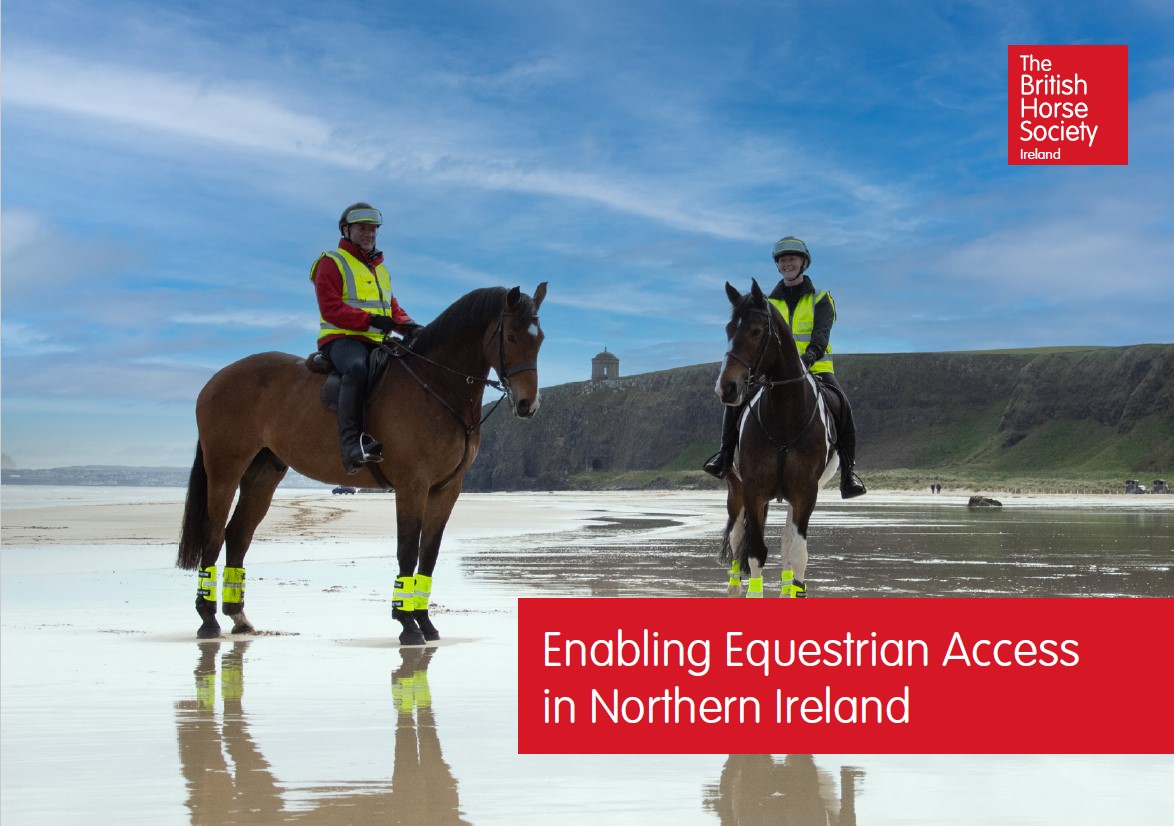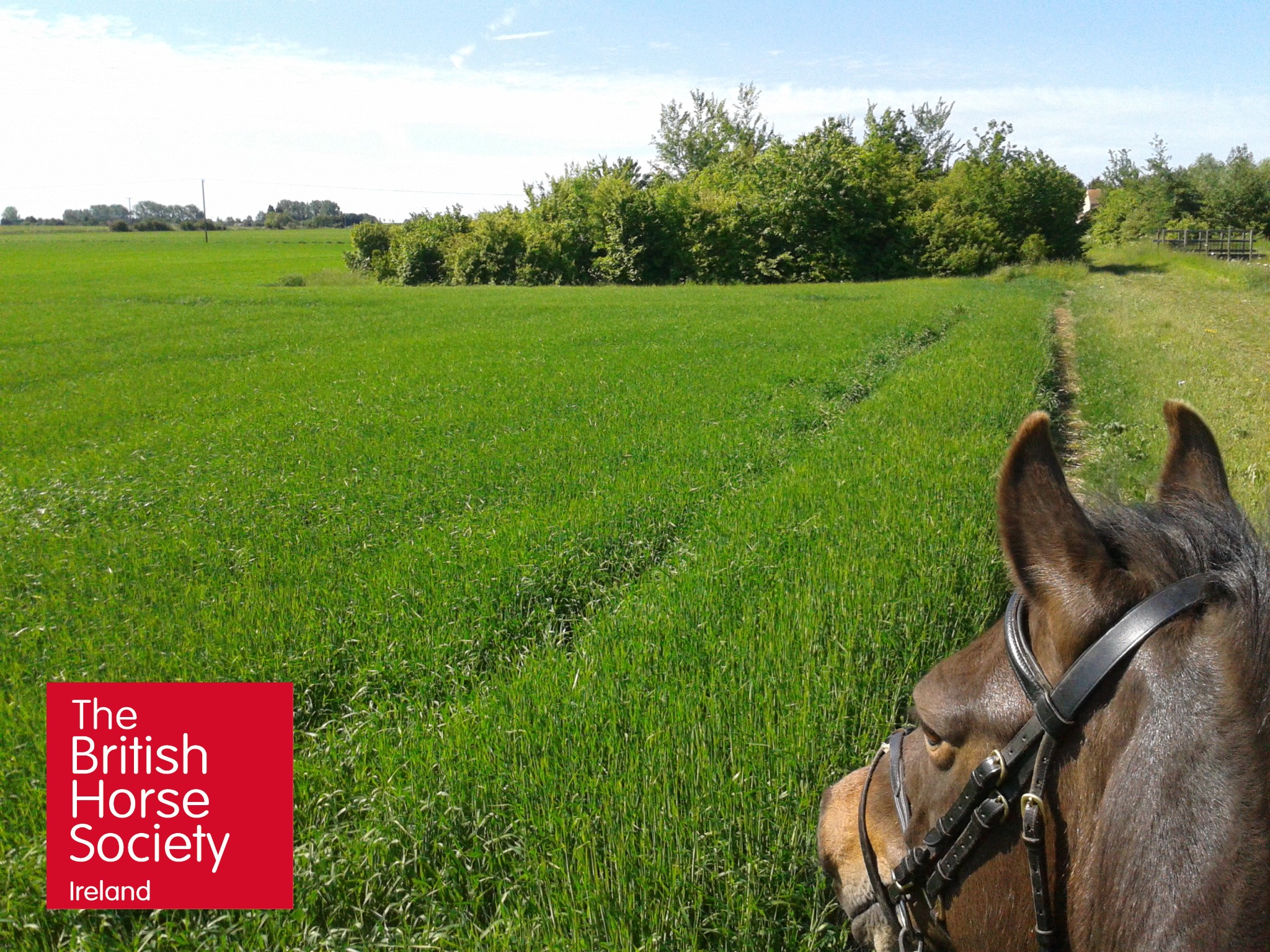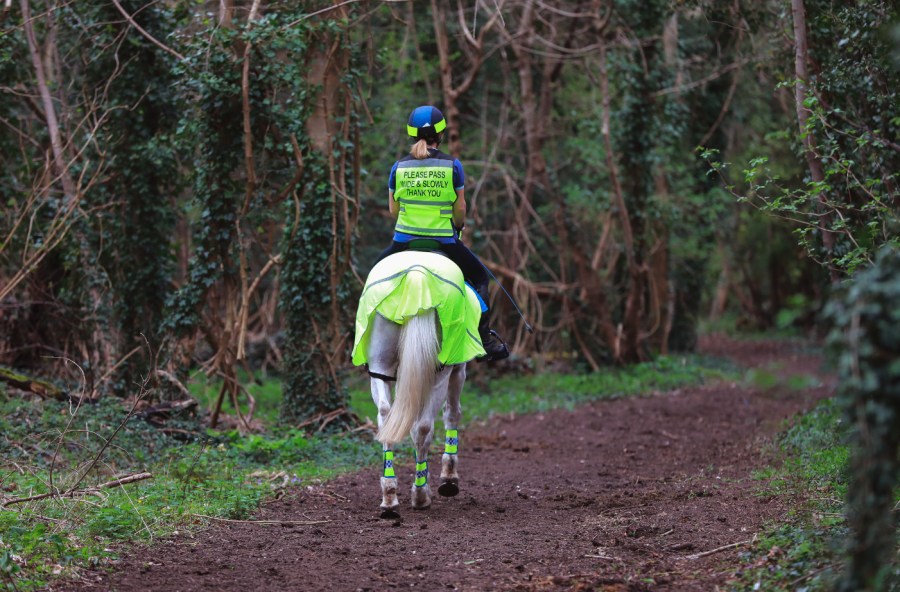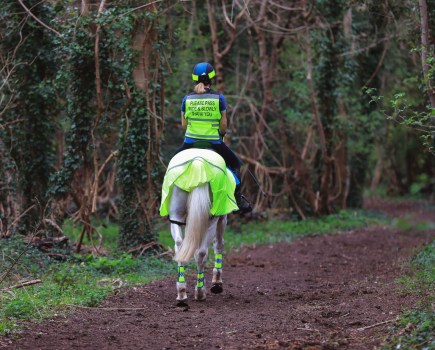The British Horse Society Ireland (BHS) has shared new guidance to support the development of off-road equestrian access in Northern Ireland, and to encourage responsible sharing of public spaces by all who use them.
There are an estimated 34,250 horses in Northern Ireland and more than 70 percent are kept for recreational purposes. Last year there were 66 horses killed on rural roads across the UK, and 129 horses and 126 riders were injured as a result of a collision with a vehicle.
 “Due to insufficient, safe off-road access for equestrians in Northern Ireland, the vast majority of equestrians are forced to use the road,” said a BHS spokesman. “Some hack to or transport a horse to an access site such as a forest or beach; however, these types of sites are not readily or sufficiently available.”
“Due to insufficient, safe off-road access for equestrians in Northern Ireland, the vast majority of equestrians are forced to use the road,” said a BHS spokesman. “Some hack to or transport a horse to an access site such as a forest or beach; however, these types of sites are not readily or sufficiently available.”
The society’s free guide “Enabling Equestrian Access in Northern Ireland” is aimed at stakeholders and the public to encourage the inclusion of equestrians in appropriate public spaces, along with technical advice and recommendation sections for planners.
A video aims to raise awareness of the need for responsible use by all users in public shared spaces and demonstrates the BHS’s Dead Slow messaging on how to safely pass a horse on the road.
https://www.youtube.com/watch?v=7DlkErSE_d0&feature=youtu.be
“Enabling the delivery of shared, multi-user access for walkers, cyclists and horse riders across every local authority is a vital element of the future of public recreation in Northern Ireland,” said Heather Clatworthy, Senior Executive of Access & Rights of Way at The British Horse Society. “A total of less than one percent of the Public Rights of Way network in Northern Ireland (known as Horse Country) provides for equestrians. The existing access provision on beaches, forests and permissive access is not enough”.
 The 2019 Department of Agriculture, Environment and Rural Affairs (DAERA) analysis of the NI Equine Industry concluded “a need for the development of additional infrastructure for accessible off-road routes and bridleways” and the BHS said it was “delighted” to be working with DAERA and key stakeholders to ensure this is brought to fruition.
The 2019 Department of Agriculture, Environment and Rural Affairs (DAERA) analysis of the NI Equine Industry concluded “a need for the development of additional infrastructure for accessible off-road routes and bridleways” and the BHS said it was “delighted” to be working with DAERA and key stakeholders to ensure this is brought to fruition.
“I encourage all equestrians to contact their local authorities and MLA’s to identify areas where access could be provided and to promote the use of this resource as a starting point to open discussions and enable access to be delivered,” added Susan Spratt, BHS Manager for Northern Ireland & Republic of Ireland. “Remember, however you access the outdoors, to be responsible, be polite and say hi!”
The BHS has welcomed support from local authorities who have embraced equestrian access which has included several popular multi-user sites across Northern Ireland, which are free to access.









